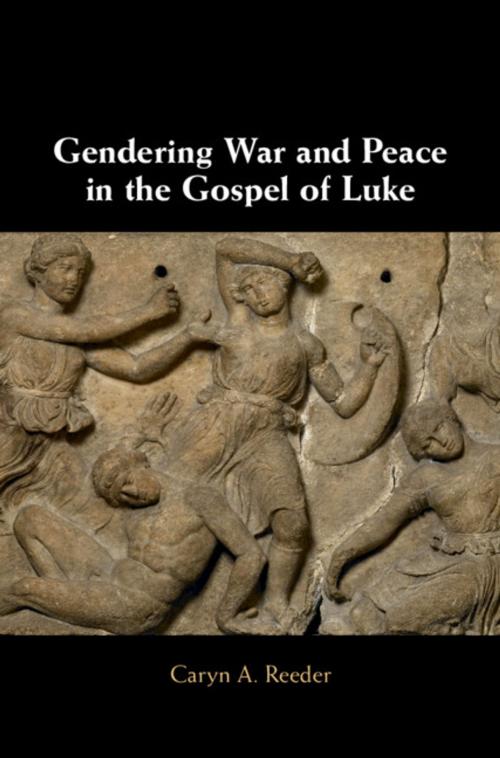Gendering War and Peace in the Gospel of Luke
Nonfiction, Religion & Spirituality, Bible & Bible Studies, New Testament, Study| Author: | Caryn A. Reeder | ISBN: | 9781108562126 |
| Publisher: | Cambridge University Press | Publication: | September 30, 2018 |
| Imprint: | Cambridge University Press | Language: | English |
| Author: | Caryn A. Reeder |
| ISBN: | 9781108562126 |
| Publisher: | Cambridge University Press |
| Publication: | September 30, 2018 |
| Imprint: | Cambridge University Press |
| Language: | English |
In this book, Caryn A. Reeder examines the gendered language and imagery of war and peace in the Gospel of Luke. Peace is represented with the blessing of fertility, pregnancy, and newborn infants. Pregnant and nursing women, women and children in general, and feminized Jerusalem also represent the horrors of war in the Gospel - abandoned, crushed to the ground, subject to woe and distress, to the point that barren wombs and dry breasts become a blessing. Reeder argues that the representation of peace with pregnant women and newborn infants, the most vulnerable in the population, indicates that victory belongs to God. This message is clarified by the encouragement of surrender and flight from besieged Jerusalem, rather than an active defense. Notably, there are no men to defend Jerusalem in Luke's warnings of war. The Gospel undermines the masculinization of war commonly found in Greco-Roman texts by redirecting the means of making peace from the violence of victory to the unmanly act of surrender.
In this book, Caryn A. Reeder examines the gendered language and imagery of war and peace in the Gospel of Luke. Peace is represented with the blessing of fertility, pregnancy, and newborn infants. Pregnant and nursing women, women and children in general, and feminized Jerusalem also represent the horrors of war in the Gospel - abandoned, crushed to the ground, subject to woe and distress, to the point that barren wombs and dry breasts become a blessing. Reeder argues that the representation of peace with pregnant women and newborn infants, the most vulnerable in the population, indicates that victory belongs to God. This message is clarified by the encouragement of surrender and flight from besieged Jerusalem, rather than an active defense. Notably, there are no men to defend Jerusalem in Luke's warnings of war. The Gospel undermines the masculinization of war commonly found in Greco-Roman texts by redirecting the means of making peace from the violence of victory to the unmanly act of surrender.















